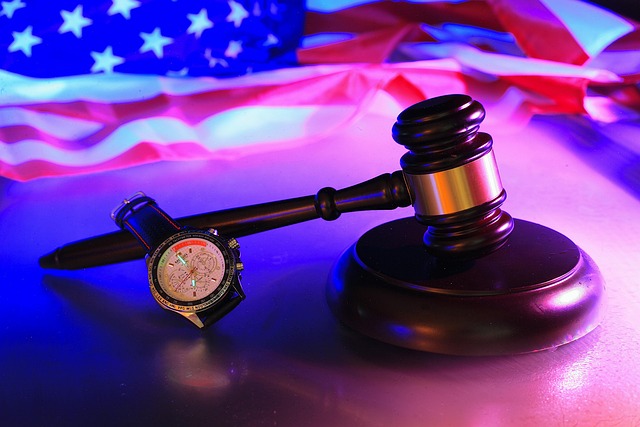The healthcare industry's regulatory landscape poses significant challenges, particularly in medical malpractice cases. The process of empaneling a criminal jury is vital for ensuring fair trials, balancing patient privacy and public health interests, and avoiding legal indictment. This involves rigorous voir dire, juror questioning by attorneys, and selection to create an unbiased panel capable of understanding complex medical evidence. High-stakes cases necessitate meticulous background checks to mitigate biased decisions. Staying informed about healthcare laws and regulations is critical for navigating these complexities, protecting patient rights, and adhering to ethical standards throughout legal processes.
In the intricate world of healthcare, navigating legal issues is as vital as delivering quality patient care. This comprehensive guide delves into the multifaceted healthcare legal landscape, exploring common challenges and critical procedures. From understanding the intricacies of empaneling a criminal jury in healthcare cases—a detailed step-by-step process—to unraveling ethical dilemmas, each section illuminates complex scenarios faced by professionals. By shedding light on patient privacy, medical malpractice, and more, this article equips readers with knowledge essential for navigating this dynamic domain.
- Understanding Healthcare Legal Landscape: An Overview of Common Issues
- The Process of Empaneling a Criminal Jury in Healthcare Cases: Step-by-Step Guide
- Patient Privacy and Confidentiality: Balancing Rights and Regulations
- Medical Malpractice Litigation: Navigating Responsibilities and Liability
- Ethical Dilemmas in Healthcare Law: Exploring Complex Scenarios
Understanding Healthcare Legal Landscape: An Overview of Common Issues

The healthcare industry is a complex web of regulations and legal considerations, making it crucial to understand the intricate landscape before navigating any potential issues. When dealing with healthcare-related matters, whether it’s a medical malpractice suit or a regulatory audit, knowledge of the legal framework is paramount. One of the key aspects that often comes into play is the process of empaneling a criminal jury, which can significantly impact outcomes in cases involving healthcare professionals.
Common legal issues in healthcare encompass a wide range from patient privacy rights and consent forms to medical negligence and regulatory compliance. For instance, the balance between protecting sensitive patient data through measures like encryption and ensuring timely access during emergencies is a delicate one. Additionally, the rise of white-collar defense and general criminal defense strategies has presented new challenges, especially in cases where healthcare organizations aim to avoid indictment by implementing robust internal controls and compliance programs.
The Process of Empaneling a Criminal Jury in Healthcare Cases: Step-by-Step Guide

The process of empaneling a criminal jury in healthcare cases involves several crucial steps to ensure a fair and impartial panel. Firstly, the judge presides over the selection process, carefully evaluating potential jurors through thorough questioning known as voir dire. This step is vital to uncover any biases or conflicts that might affect their judgment, especially in complex healthcare litigation. The judge guides the panel through a series of questions designed to elicit insights into their background, experiences with healthcare systems, and understanding of legal principles related to medical malpractice.
Subsequently, both the prosecution and defense attorneys actively participate by questioning prospective jurors individually. This allows for a deeper exploration of their perspectives, personal connections to healthcare issues, and ability to render unbiased decisions. The goal is to create a jury pool that reflects the community at large, encompassing diverse backgrounds and experiences. By carefully sifting through each potential juror, attorneys aim to secure a panel capable of understanding intricate medical evidence and rendering winning challenging defense verdicts for his clients while remaining sensitive to the needs of the philanthropic and political communities.
Patient Privacy and Confidentiality: Balancing Rights and Regulations

In the healthcare sector, patient privacy and confidentiality are paramount, yet they exist in a delicate balance with legal requirements and ethical considerations. Patients have a right to expect that their sensitive medical information will be kept secure and used responsibly. This is ensured through various regulations, such as HIPAA (Health Insurance Portability and Accountability Act) in the United States, which outlines strict guidelines for protecting patient data. Healthcare providers must implement robust security measures to safeguard electronic health records and maintain confidentiality during disclosures. However, this privacy comes with stipulations; medical professionals may need to share information with authorized personnel, researchers, or law enforcement under specific circumstances, such as public health concerns or legal proceedings.
The process of empaneling a criminal jury is one area where these issues intersect. In high-stakes cases, where the respective business interests and reputations are on the line, protecting patient privacy while facilitating the legal process can be challenging. For instance, during a trial involving medical malpractice claims, the balance shifts towards disclosing relevant records to ensure a fair trial. Yet, maintaining confidentiality remains crucial to prevent potential harm to patients and their families. Therefore, legal professionals must navigate these complexities, ensuring that patient rights are respected while adhering to regulations, especially when dealing with sensitive information that could be used as evidence in court.
Medical Malpractice Litigation: Navigating Responsibilities and Liability

Medical Malpractice litigation involves navigating complex responsibilities and liability, particularly when considering the process of empaneling a criminal jury. In high-stakes cases where an unprecedented track record is at stake, understanding this process becomes paramount for protecting clients’ interests. The selection of jurors plays a pivotal role in the outcome of such trials, as they are tasked with deciding on matters of life and death.
This meticulous process requires attorneys to delve into detailed background checks, ensuring impartiality and competency. By meticulously screening potential jurors, legal professionals can safeguard their clients from biased decisions that might arise due to pre-existing conditions or personal biases. This strategic approach, honed through years of experience, is crucial in managing high-pressure situations where the stakes are incredibly high.
Ethical Dilemmas in Healthcare Law: Exploring Complex Scenarios

In healthcare, ethical dilemmas often arise due to conflicting interests and values. Scenarios such as consent issues, patient privacy versus public health, or resource allocation in times of scarcity challenge practitioners to make complex decisions. For instance, navigating the process of empaneling a criminal jury in medical malpractice cases involves balancing the need for justice with maintaining patient confidentiality. Every step, from selecting jurors to presenting evidence, must be handled carefully to avoid indictment and ensure fairness.
These dilemmas are further exacerbated by the evolving nature of healthcare laws and regulations. An unprecedented track record of legal precedents underscores the importance of staying informed and adaptable. Healthcare professionals must remain vigilant throughout all stages of the investigative and enforcement process to safeguard patient rights while adhering to ethical standards.
Healthcare law encompasses a complex web of regulations and ethical considerations. From understanding the legal landscape to navigating patient privacy, medical malpractice, and ethical dilemmas, professionals must stay vigilant. The process of empaneling a criminal jury in healthcare cases, for instance, requires a nuanced approach to ensure justice while respecting sensitive nature of medical practices. Balancing rights and responsibilities is crucial, especially with evolving digital health records and data privacy laws like HIPAA. Staying informed and proactive is key to successfully navigating this dynamic field.






